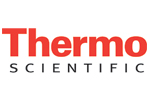08:00 | Registration |
|
Session: NGS Analysis in Disease Identification |
| |
09:30 | Revolution in Disease Gene Identification - Exome Sequencing
Alexander Hoischen, Post Doctoral Researcher, Radboud University, Netherlands
Exome sequencing has lead to a revolution in disease gene identification. Recent breakthroughs show the potential of this technology and the unprecedented speed with which especially Mendelian disease genes are now identified. |
10:00 | Medip-Seq Genome Wide Analysis of the Methylome
Andrew Feber, Post Doctoral Researcher, University College London, United Kingdom
Next-generation sequencing technologies have emerged as powerful tools to allow, whole-genome profiling of epigenetic modifications, including DNA methylation (methylome). Analysis of methylome allows us to ask and answer more intricate questions of how DNA methylation effects the malignant genome. |
10:30 | Coffee and Networking in Exhibition Hall |
11:15 | Cancer Methylome Profiling using Methyl-DNA Capture
Arjen Brinkman, Research Scientist, Radboud University/Nijmegen Center for Molecular Life Sciences, Netherlands
This talk will discuss: Methodology for NGS-based DNA methylation analysis in cancer, methylCap-seq technology for methylated-DNA capture and fractionation, small-scale and large-scale validation of MethylCap-seq, identification of differentially methylated regions within unique and repetitive regions of the genome and classification based on whole-genome DNA methylation profiles. |
11:45 | Genomic Instability and the Evolution of Cancer
Francesca Ciccarelli, Group Leader, European Institute of Oncology Milan, Italy
Cancer is often associated to genomic instability, defined as the dynamic acquisition and propagation of genomic modifications. In several cases these modifications are causally implicated in the initiation and development of the disease. The latest improvements in sequencing technologies have boosted the discovery of cancer-associated modifications, thus allowing the investigation of several aspects of cancer genomic instability. In this talk, our contribution to the understanding of the genetic and genomic determinants of cancer will be presented. Particular emphasis will be laid on the properties of genes whose mutations are causally implicated in cancer and on the detection of cancer-associated genomic instability. |
12:15 |  Technology Spotlight: Technology Spotlight:
NGS Sample Prep Simplified - The Beckman Coulter Continuum of Automated Sample Preparation
Christoph Krull, Product Manager Europe, Beckman Coulter
|
12:30 | Lunch and Networking in Exhibiton Hall |
12:45 |  Free Workshop Free Workshop
Advancement of Separation, Purification and Crystallography from Agilent Technologies
|
13:15 | Poster Viewing |
13:30 |  Free Workshop Free Workshop
High Content Screening for Compounds and Genes Affecting Bacterial and Viral Infections
|
14:15 | Mate-Pair Sequence Analysis of Somatic and Germline Structural Variation in Human Genomes
Wigard Kloosterman, Assistant Professor, University Medical Center Utrecht, Netherlands
Mate-pair sequencing is a powerful tool to detect structural genomic variation at high resolution. We are using this technology to understand the mechanisms and contribution of structural variation to congenital defects and cancer. |
14:45 | Genetics of Coronary Artery Disease. From GWAS and Beyond
Jeanette Erdmann, Professor and Head, University of Lübeck, Germany
After the great success of genome wide association studies the time is now ready to apply next generation sequencing technologies to fully explain the genetic basis of coronary artery disease and myocardial infarction. |
15:15 | Coffee and Networking in Exhibition Hall |
16:00 | Expanding Sequencing Applications using Target Enrichment and Application to Complex Diseases Research
Emily Leproust, Director, Agilent Technologies Inc, United States of America
During this presentation you will learn how in-solution target enrichment can be applied to discover and profile SNPs, InDels and CNVs in Mendelian and complex diseases research. |
|
Session: Current and Future Challenges in NGS |
| |
16:30 | Evaluation and Characterisation of a 3rd Generation Single Molecule Sequencer
Michael Quail, Team Leader, Wellcome Trust Sanger Institute, United Kingdom
Sanger Institute became the first laboratory within Europe to install a 3rd generation Sequencing platform. In this presentation we will detail the results obtained from our evaluation and characterisation of the Pacific Biosciences RS single molecule sequencer. |
17:00 | Latest Advances in Covaris AFA DNA and ChIP Shearing, Emulsion PCR and SNP Validation
Phil Robinson, Managing Director, KBioscience, United Kingdom
|
17:30 | Color-Encoded Particles as a Platform for Next Generation DNA Sequencing
Vera Gorfinkel, Professor, State University of New York/Genometrica Ltd, United States of America
A novel approach to high throughput DNA sequencing is presented, based on cycle sequencing of DNA molecules amplified on the surface of micro-beads encoded with compositions of quantum dots, and very fast, single-photon sensitive, and highly accurate detection and recognition of the beads' color codes. |
18:00 | Drinks Reception |






